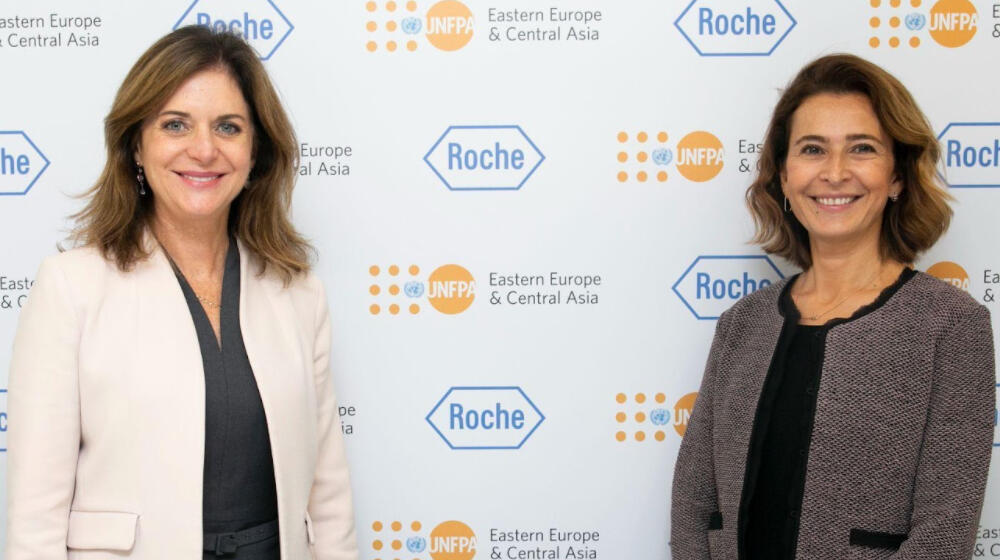Istanbul, November 2021 - UNFPA’s Regional Office for Eastern Europe and Central Asia and Roche Diagnostics Turkey, Central Asia and Caucasian Countries Management Center are joining forces to prevent cervical cancer.
A partnership agreement was signed between the two institutions to advance progress towards eliminating cervical cancer in Eastern Europe and Central Asia, and raise awareness about the importance of screening for the human papillomavirus (HPV), which causes this cancer.
With this partnership, UNFPA and Roche will share knowledge, organize regional forums, conduct training for healthcare professionals, undertake research and provide evidence on the cost-benefit of HPV testing.
“We are very excited about this new partnership with Roche,” said Alanna Armitage, Director of UNFPA’s Regional Office for Eastern Europe and Central Asia. “Cervical cancer is the second most common cause of cancer death among women of reproductive age in Eastern Europe and Central Asia, and the number of new cases registered annually is up to 10 times higher than in Western Europe. With this partnership we hope to close this gap and accelerate efforts in eliminating cervical cancer as a public health problem.”
“The World Health Organization estimates that 311,000 women globally die each year from cervical cancer. Without vaccination, screening and the right treatment, we can’t eliminate cervical cancer as a public health problem and make it a disease of the past,” said Burçak Çelik, General Manager of Roche Diagnostics Turkey, Head of Turkey & Central Asia and Caucasian Countries Management Center. “To combat this challenge, we need to increase awareness and the vaccination rate of the society and train healthcare professionals on HPV screening. Therefore, our partnership with UNFPA will have a great importance in our common goal to eliminate cervical cancer in the region.”
Most cervical cancer deaths are preventable. Screening programmes can reduce cervical cancer rates by up to 80 per cent and by up to 90 per cent when combined with HPV vaccination of adolescent girls.
The World Health Organization launched its global strategy to accelerate the elimination of cervical cancer in 2020. It calls for governments, civil society, the private sector, international organizations and affected populations to collaborate and increase HPV testing to help identify those most at risk of cervical cancer. The strategy outlines three measurable global targets to prevent and treat cervical cancer:
- By 2030, 90 per cent of girls should be fully vaccinated with HPV vaccine by 15 years of age;
- 70 per cent of women should be screened using a high-performance test by age 35, and again by age 45;
- 90 per cent of those identified with cervical disease should receive appropriate treatment.
The partnership between UNFPA and Roche aims to contribute to achieving these targets.


